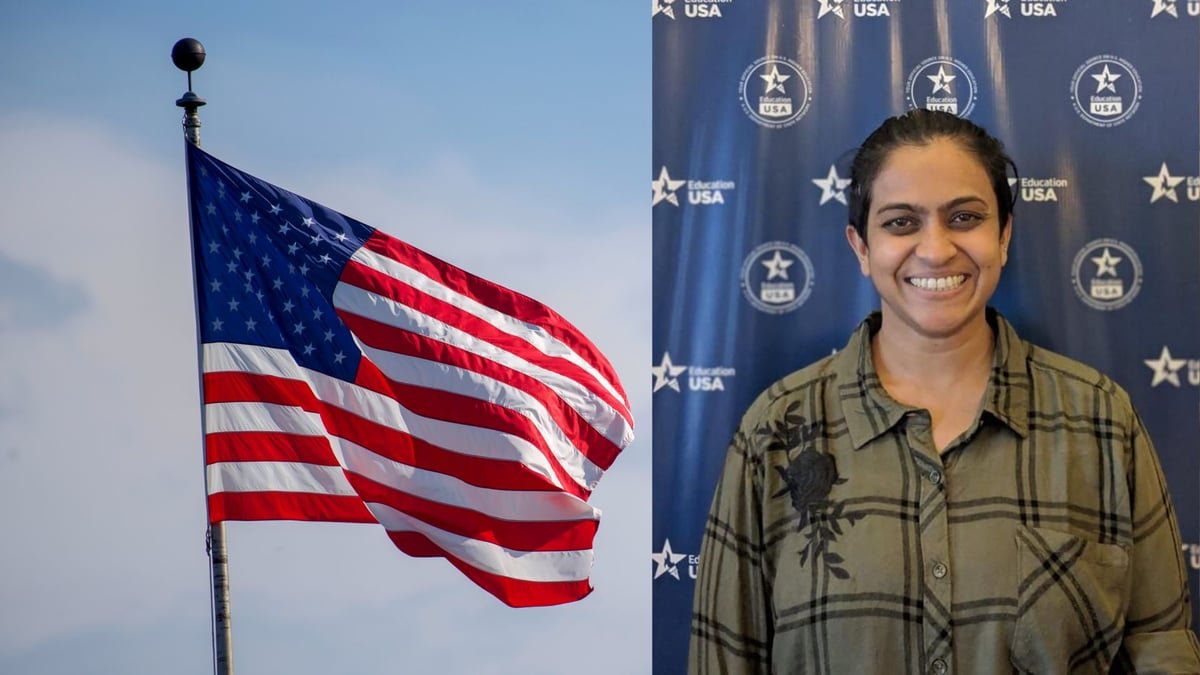For Indian students aspiring to study in the United States, the journey is both exciting and challenging. With over 4,000 accredited U.S. universities offering a diverse range of programs, practical training opportunities, and campus life activities, students have a multitude of options to choose from.
However, with such great choice comes the responsibility to conduct thorough research, ask the right questions, and make informed decisions.
In today’s information-driven world, knowing where to search and which sources to trust is essential. This article explores why conducting authentic research is crucial for students, helping them make decisions that align with their academic and personal goals.
Before diving into research, students should take a step back to reflect on why they want to pursue higher studies, and their reasons to study in the United States. Introspection is a crucial step in making informed decisions.
It requires students to think deeply about their career goals, academic preparation, financial investment, and other important factors. Too often, students choose a program because they believe it will lead to better career prospects without considering whether the program aligns with their true interests and skills.
While career opportunities are important, they should not be the only driving force behind such a significant decision.
Students should ask themselves questions like: What are my long-term career goals? Am I academically prepared for this program? Is this the right financial investment for me and my family? Will I achieve the expected return on this investment, not only in terms of salary but also in terms of personal and professional growth?
By beginning with these questions, students can ensure that their decision to study in the United States is based on deep understanding of their own goals and motivations, rather than on external influences or fleeting trends.
The EducationUSA website offers a worksheet that students can use. It helps students to reflect on questions that they should ask themselves before beginning the application process. Link
Finding the “best-fit” U.S. university involves more than rankings or reputation.
For every student, the ideal university depends on several factors: academic interests, career aspirations, financial considerations, campus culture, and more. Conducting in-depth research allows students to tailor their search to their individual needs, leading to a more satisfying and successful U.S. university experience.
For instance, a student interested in technology and innovation might lean towards universities with robust engineering programs and strong industry connections.
Meanwhile, a student passionate about the arts might look for universities with creative environments, such as those offering interdisciplinary programs in film, music, or design.
For students aiming to pursue doctoral studies, research is even more critical.
For example, a student interested in a PhD program in neuroscience must look beyond general U.S. university rankings and focus on specific factors such as faculty expertise, ongoing research projects, and lab facilities.
They should ask questions like: Which professors are conducting cutting-edge research in my field of interest? Are these professors currently accepting doctoral students? Are there sufficient research grants or funding opportunities available? What is the publication record of the faculty in this department? Only through careful research can students uncover the unique strengths of each U.S. institution and determine how these align with their personal goals.
Given the vast number of universities and programs available, the importance of relying on authentic sources of information cannot be overstated.
U.S. university websites provide real-time updates on program structures, admissions requirements, and scholarships. One of the most critical reasons to rely on authentic sources is to ensure that the U.S. universities students are considering are accredited. Accreditation is the process through which universities are evaluated for their academic quality.
Attending an accredited institution ensures that a degree is recognized globally and meets certain standards. Students should take advantage of opportunities such as EducationUSA fairs to meet university representatives directly or attend virtual information sessions hosted by various U.S. universities to obtain the most up-to-date information.
In India, the advice of friends and family members studying and living in the United States often carries significant weight. While their experiences can be helpful, they should not be considered the final word. Every student’s journey is unique, and what works for one person may not be the best choice for another.
Friends or family studying at a particular U.S. university may have personal biases based on their experiences, which can skew their advice. For example, a student studying at a large, urban U.S. university might recommend the same environment to someone who would thrive better in a smaller, more intimate setting.
To make the best decision, students should always verify information from friends or family against official sources. U.S. university websites, EducationUSA, and direct communication with admissions offices at the U.S. universities provide reliable, up-to-date information that reflects the latest policies and opportunities.
Although U.S. university rankings are often used by students to create an initial list of universities that they might want to apply to, they should not be the sole factor in the final decision-making. Rankings provide an overview of a university’s general reputation, but they are based on broad metrics that may not align with what is most important to a student’s specific situation.
Factors such as faculty expertise or support for international students might not be reflected in overall rankings. For example, a U.S. university with a high academic ranking might not offer the same level of support for international students as a smaller, lesser-known U.S. institution.
Similarly, a U.S. university with a strong reputation for research in science, technology, engineering, and mathematics (STEM) fields may not have the same depth in humanities programs. By diving deeper into specific programs and priorities, students can identify U.S. universities that align with their academic, social, and financial needs.
Relying on inauthentic sources, such as unverified blogs or social media posts, can have serious consequences. These sources might provide misleading information about program details, U.S. university rankings, or financial estimates.
Conducting research through authentic channels not only helps students avoid these pitfalls but also empowers them to take control of their educational journey in the United States.
Ultimately, choosing the right U.S. university is one of the most important decisions a student will make. By conducting thorough research and consulting trusted resources such as U.S. university websites, meeting directly with U.S. university representatives at EducationUSA fairs, and getting in touch with EducationUSA advisers, students can navigate the complexities of the U.S. higher education system with confidence. In doing so, they will not only find the right U.S. university but also take ownership of their future.
(For more information about studying in the United States, please visit the EducationUSA India website https://educationusa.in and for individual queries or direct counselling with an EducationUSA adviser, please write to USEducationQueries@state.gov)
The author is EducationUSA adviser at the United States India Educational Foundation (USIEF) Mumbai




